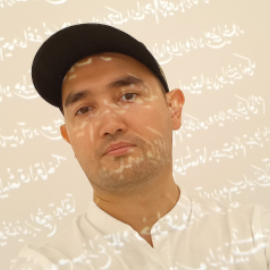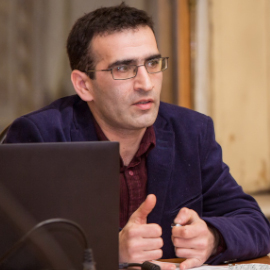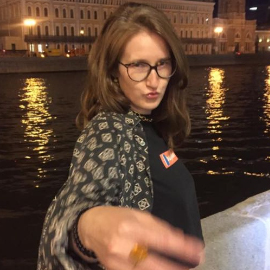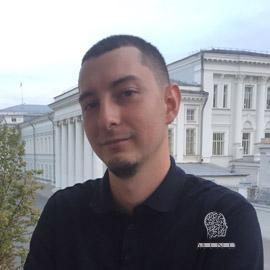About
The main objective of this ERC Starting project is to write a comprehensive history of Muslim individuality in Russia since the eighteenth century up to the years of Perestroika. This research takes the practice of building private archival collections as a starting point in analyzing the models and concrete forms of self-conception. We assume that the very process of collecting ego-documents by individuals in the course of their lives can be perceived as an autobiographic act and needs to be studied accordingly. Therefore, our project problematizes not only the separate sources in which individuals describe themselves, be that life writing narratives or photographs, but also the private archives as a space of self-cultivation. For this reason, the regular fieldwork across the Russian Federation and beyond to work with private collections in situ or analyze them as part of the state archival holdings occupy an important place in our research agenda.
On the methodological level, our goal is to describe and explain the workings of Muslim subjectivity in Russia, the multiple personal and communally shared techniques of engagement with the available cultural repertoire and hence making sense of the self and the world around. By cultural repertoire (a) we understand the plethora of ideas and practices pertaining to the Islamic episteme potentially available in a given locality up to a certain period of time. A perception of music, love, architecture, travel, legality and any other aspects of human life is part of the cultural repertoire. Understandably, individuals cannot access this realm in its entirety. To make sense of their lives they turn to certain models (b), the ideal types that embody a combination of elements selected from the broad cultural repertoire. To be a Muslim scholar (‘alim) means to pursue this level of abstract model with a culture-specific set of societal expectations, obligations and privileges. One step down we find the concept of persona (c), i.e. a more concrete example of performing the ideal personal qualities. Individuals want to imitate those whose behavior, career, and even outlook they find attractive and successful. On the personal level, we find the messy world of uncertainties and an individual search of the self (d) that results in a range of cultural practices in direct engagement with personas, models, and the broad spectrum of available options.
This methodological framework helps to hold parts of the project together. Each subproject engages with these four levels of Muslim subjectivity, identifying the workings between models of differing abstraction on the one hand and the multiple forms of self-fashioning on the other. Given the aims of the project, our team inevitably deals with aspects of the history of emotion and the materiality of religion.
Some preliminary findings of our project have been presented in an exhibition titled The Global World of Tatar Book Culture. Our exhibition’s booklet can be found here.
For the project’s media files and videos from the expeditions please click here.




PEOPLE

Dr. Alfrid Bustanov
Dr. Alfrid Bustanov is the Principal Investigator of the MIND. His academic interests currently center on forms of self-fashioning in various spatial contexts. He explores the entanglement of emotions, bodily practices, material objects, and space. Alfrid combines his expertise in state and private archives across the Russian Federation with anthropological methods. He received his Ph.D. from Amsterdam University in 2013 and since then has published widely on various topics of Islam in Russia, both past and present.
contact me
Dr. Shamil Shikhaliev
Dr. Shamil Shikhaliev is a postdoc within the MIND programme. Shamil possesses unique experience in the study of Muslim written cultures of the North Caucaus. Currently, he is writing a monograph devoted to the private archive of Magomed-Said Saidov (1902-1985), an eminent Soviet Arabist quo Muslim scholar. In his project Shamil looks at the ways how Muslim personality was articulated through archival practices. Over the last decade Shamil has been part of the regular manuscript expeditions that yielded a lot of primary material on Muslim individuality in Russia.
contact me
Galiia Muratova
Galiia Muratova is a PhD candidate at the department of European Studies, University of Amsterdam. In her dissertation Galiia analyses the interplay of visuality and textuality in personal archives of Soviet Muslims. In her research she combines the historical and anthropological approaches. By looking at the private archives of photography Galiia hopes to describe the models that individuals employed to perform their subjectivity. Galiia has a background in Middle Eastern studies that she studied at the Oriental Department of St Petersburg University. Additionally, Galiia is a part of the ARTES PhD-representatives group and serves as a PhD-representative at the Department Board of European Studies at the University of Amsterdam.
contact me
Mansur Gazimzianov
Mansur Gazimzianov is a PhD candidate at the department of European Studies, University of Amsterdam. In his dissertation Mansur looks at the autobiographical texts produced by Muslims in Imperial and Soviet Russia. His project lies at the crossroads of several disciplines, such as history, comparative literature, and cultural studies. Mansur received his BA in Islamic studies at the Kazan Federal University and MA in History at the European University at St. Petersburg.
contact me